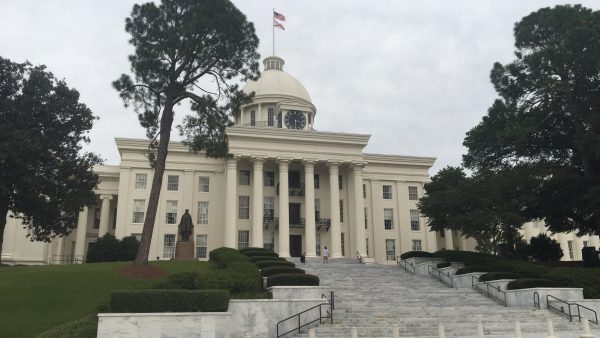Gambling, ethics bills fall short as legislative session ends
Alabama lawmakers closed the books on this year’s regular legislative session Thursday. While Republican leaders passed many of their priority bills, perhaps the most talked about issue – gambling – fell short. A lottery and gambling package failed to make it out of the legislature by one vote.
“How many years have we seen gambling legislation come up in the Alabama legislature and ultimately fall short?” said Todd Stacy, host of Capitol Journal on Alabama Public Television.
Stacy offered a final look at the 2024 legislative session.
Luck runs out on gambling
Alabama lawmakers ended the legislative session without approving a lottery, slot machines and video poker machines, continuing a 25-year stalemate on the issue of gambling.
Supporters were unable to break an impasse in the Alabama Senate after the measure failed by one vote earlier in the session.
“That led a lot of people to think, ‘Well, ok. Just one vote. Maybe we can bring it up on the last day? Maybe something can change?’” Stacy said.
The Senate did not take the bill up again on the session’s final day, ending hopes of getting the issue before voters later this year.
Alabamians last cast ballots on the issue of gambling in 1999, when voters rejected a lottery proposed by then-Gov. Don Siegelman. There have subsequently been multiple efforts for lottery bills, but the measures stalled amid debate over casinos and electronic gambling machines.
Gov. Kay Ivey, who expressed support for the bill in her State of the State address, told reporters that she was disappointed in the outcome. Asked if she would call a special session on the subject, Ivey suggested it would be pointless unless lawmakers can reach an agreement.
“Going forward it’s unclear whether there will ever be the votes to pass something meaningful on gambling,” Stacy said.
Ethics bill dies
A proposed revamp of Alabama’s ethics law died in committee Wednesday. The Senate Judiciary Committee opted not to vote on the bill, meaning it could not get final approval before the legislative session ended. The decision came amid opposition from both the Alabama attorney general’s office and the Alabama Ethics Commission.
“That was enough to slow it down and allow Senators to ask questions,” Stacy said. “It was well intended, lots of good ideas, but the details in the law really matter.”
The bill’s sponsor, Republican Rep. Matt Simpson, added it’s a misconception that his legislation would weaken the current ethics law, which covers 300,000 public state employees and officials. He blamed a “turf war” over control of ethics enforcement for dooming the bill.
Stacy said lawmakers did pass a measure which will allow the state to hire an outside consultant to analyze the state ethics law and make recommendations.
“Maybe that will result in something next year or down the road,” Stacy said.
The session in review
The session brought many wins for the Republican majority, with bills passed including a new school choice program, restrictions on certain assistance with absentee ballots and a ban on diversity, equity and inclusion programs in state entities. Ivey signed a bipartisan package of workforce development bills into law Thursday aimed, in part, at raising Alabama’s chronically low workforce participation rate.
Lawmakers passed protections for in vitro fertilization providers in the wake of an Alabama Supreme Court ruling that found frozen embryos are children.
“Nobody thought the legislature was going to have to deal with that. That took up a lot of time,” Stacy said.
According to Stacy, there is always natural tension between the House and Senate chambers. But that was elevated this year, in particular over gambling.
“The House did so much work on that and felt kind of betrayed when the Senate changed it and really gutted their bill,” Stacy said. “I think in the off season there probably does need to be some reconciliation between House members and Senate members.”
Includes reporting from the Associated Press
Northeast readies for a major winter storm, with blizzard warnings in effect
New Jersey through Massachusetts could see 2 feet of snow. New York City's mayor said the city had not "seen a storm like this in a decade."
Mexican army kills leader of Jalisco New Generation Cartel, official says
The Mexican army killed the leader of the powerful Jalisco New Generation Cartel, Nemesio Rubén Oseguera Cervantes, "El Mencho," in an operation Sunday, a federal official said.
Ukraine’s combat amputees cling to hope as a weapon of war
Along with a growing number of war-wounded amputees, Mykhailo Varvarych and Iryna Botvynska are navigating an altered destiny after Varvarych lost both his legs during the Russian invasion.
University students hold new protests in Iran around memorials for those killed
Iran's state news agency said students protested at five universities in the capital, Tehran, and one in the city of Mashhad on Sunday.
Pakistan claims to have killed at least 70 militants in strikes along Afghan border
Pakistan's military killed at least 70 militants in strikes along the border with Afghanistan early Sunday, the deputy interior minister said.
Team USA faces tough Canadian squad in Olympic gold medal hockey game
In the first Olympics with stars of the NHL competing in over a decade, a talent-packed Team USA faces a tough test against Canada.






